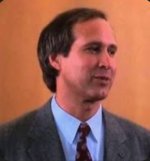I will counterpoint this without defending those in charge. They were academicians who deal in absolutes and labs and not in reality. In a perfect world having zero exposure to people would be the ideal way to eradicate a disease. Also not realistic. The problem was they pushed so hard one way that they defeated their own cause and people rebelled. What we needed was a steady hand in leadership who tried to split the middle. Please be careful, but we can’t shut everything down. Instead you had one side saying never go outside and the other side telling everyone to lick doorknobs.
The other issue was communication. When I would tell other doctors what I was seeing, they knew I was just figuring it out and my story may change next week. This was all brand new. The general public is going to take what a health professional says as law. If I had been the mouthpiece for the CDC that would have been the first thing I said at every press conference. “At this time this is the information we have, but please keep in kind that all of this may change as we learn more”. That simple statement would have fixed a lot of distrust
But, yes, you are 100% right about where the distrust comes from.
All fair, but I don't think a lot of the distrust comes from the changing narrative at the beginning of the pandemic although that's part of it.
I think most of the damage was done when people started figuring out the public health community (not sure that's the right word, but primarily talking about those setting policy, not practitioners) had mostly guessed wrong but were not just doubling down but being vindictive. Long after visitors were walking through halls unmasked and with no questions about vaccination status, CMS was essentially encouraging if not mandating that hospital systems fire remote workers in billing if they weren't vaccinated. Same thing for OFFCP.
People that disagreed with them on policy weren't just having good faith disagreements, they were killing people. This would have been bad even if the ones having their preferred policy implemented had been right in hindsight. The fact that they were mostly exactly wrong on things and then basically took the position that they would never forgive those skeptical of them for being right has been brutal for trust.
Going out and arresting people that believed "2 weeks to flatten the curve" was actually 2 weeks to flatten the curve was a terrible look. Having public health officials get in front of a podium and lecture people about staying at home or they will be killing people and then going out for gay orgies was horrible. Having bureaucrats destroy people's life work before going out to eat with lobbyists and politicians was a horrible look. Just lots of individual bad actors that created this perception that none of them believed anything they said.
Again, none of this should really fall on practitioners, and I don't think it has for people that have a real relationship with their doctor, but I think for the patients that just go to the next doctor that will see them or get rotated through the doctors in a practice without having "their" doctor, I think it does. People had their faith in the system crushed and even if they don't think the practitioner they are talking to is "in on it", I think they are concerned about who that practitioner learned from and what they learned.

